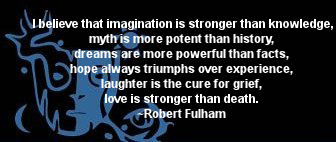|

"New Fire"
A prose poem from An Elemental Thing, (Spring, 2007)
© Eliot Weinberger and used with permission
 In the Aztec empire, every fifty-two years, once in an average lifetime, the world was on the verge of coming to an end. The sun would no longer move, night would be eternal, and man-eating demons would descend to rule the earth.
In the Aztec empire, every fifty-two years, once in an average lifetime, the world was on the verge of coming to an end. The sun would no longer move, night would be eternal, and man-eating demons would descend to rule the earth.
On that day all fires were extinguished, and floors were swept clean. Old clothes, the images of gods kept in the house, the hearthstones on which cooking pots were kept, mats, pestles, and grindstones were cast into lakes and rivers. Pregnant women were given maguey masks and locked in granaries; if the world ended, they would turn into monsters.
That night, everyone dressed in new clothes, climbed onto terraces and rooftops; no one touched the ground. Children were poked and threatened, to keep them awake; those who slept would wake up as mice. In Tenochtitlan, the capital, eyes were fixed on the temple atop the Hill of the Star. There, at midnight, the priests were watching the stars called Tianquitzli, the Marketplace, our Pleiades, to see if they would cross the meridian and ensure another fifty-two years of life.
In the temple, a prisoner without physical blemishes, with a name meaning turquoise, year, fire, grass, or comet &8212; words that denote precious time — was stretched across a flat stone with a piece of wood on his chest. As the Tianquitzli constellation crossed the line, a priest began furiously spinning his fire drill into the wood. A little smoke, a few sparks, and then, as the wood took flame, the prisoner's chest was slit open with an obsidian knife, his heart pulled out and set in the fire. Four bundles of tied wood, each with thirteen logs, were piled around him so that his whole body was consumed by flames.
As the bonfire became visible, the people slashed their ears and the ears of their children, scattering blood toward the flames. Messengers carried torches from the Hill of the Star to the principal temples, and from there to the palaces, and from the palaces, street by street, house by house, until the whole city was lit again. All night, relay runners carried the new fire throughout the empire. People threw themselves at the fire to be blessed with blisters.
Children born in the night were given the name New Time. In the morning new mats were spread out, new hearthstones placed, incense lit, and honey-dipped amaranth seed cakes eaten by all. Quails were decapitated.
Eliot Weinberger's books of literary writings include Works on Paper, Outside Stories, Written Reaction, Karmic Traces, The Stars, Muhammad, and the forthcoming An Elemental Thing. His work regularly appears in translation and has been published in some thirty languages.
His political articles are collected in 9/12, What I Heard About Iraq, and What Happened Here: Bush Chronicles, a finalist for the National Book Critics Circle award for criticism and selected for the Times Literary Supplement's "International Books of the Year." The Guardian (UK) said of What I Heard About Iraq: "Every war has its classic antiwar book, and here is Iraq's." It has been adapted into a prize-winning theater piece, two cantatas, two radio plays, a dance performance, and various art installations; has appeared on some 100,000 websites; and was read or performed in nearly one hundred events throughout the world on 20 March 2006, the anniversary of the invasion.
The author of a study of Chinese poetry translation, 19 Ways of Looking at Wang Wei, he is the translator of Unlock by the exiled poet Bei Dao, and the editor of The New Directions Anthology of Classical Chinese Poetry, also a TLS "International Book of the Year."
He is the editor of the anthologies American Poetry Since 1950: Innovators & Outsiders and World Beat: International Poetry Now from New Directions. His many translations of the work of Octavio Paz include the Collected Poems 1957-1987, In Light of India, and Sunstone. Among his other translations are Vicente Huidobro's Altazor, Xavier Villaurrutia's Nostalgia for Death, and Jorge Luis Borges' Seven Nights. His edition of Borges' Selected Non-Fictions received the National Book Critics Circle award for criticism.
In 1992, he was the first recipient of the PEN/Kolovakos Award for his promotion of Hispanic literature in the U.S.; in 2000, he became the only American literary writer to be awarded the Order of the Aztec Eagle by the government of Mexico. He is prominently featured in the Visitor's Key to Iceland, and was chosen by the German organization Dropping Knowledge as one of the "world's most innovative thinkers." At the 2005 PEN World Voices Festival, he was presented as a "post-national writer." He lives in New York City.
Read more by
Eliot Weinberger
Return to the Mythic Passages Menu
Subscribe to the Mythic Passages e-zine
|

